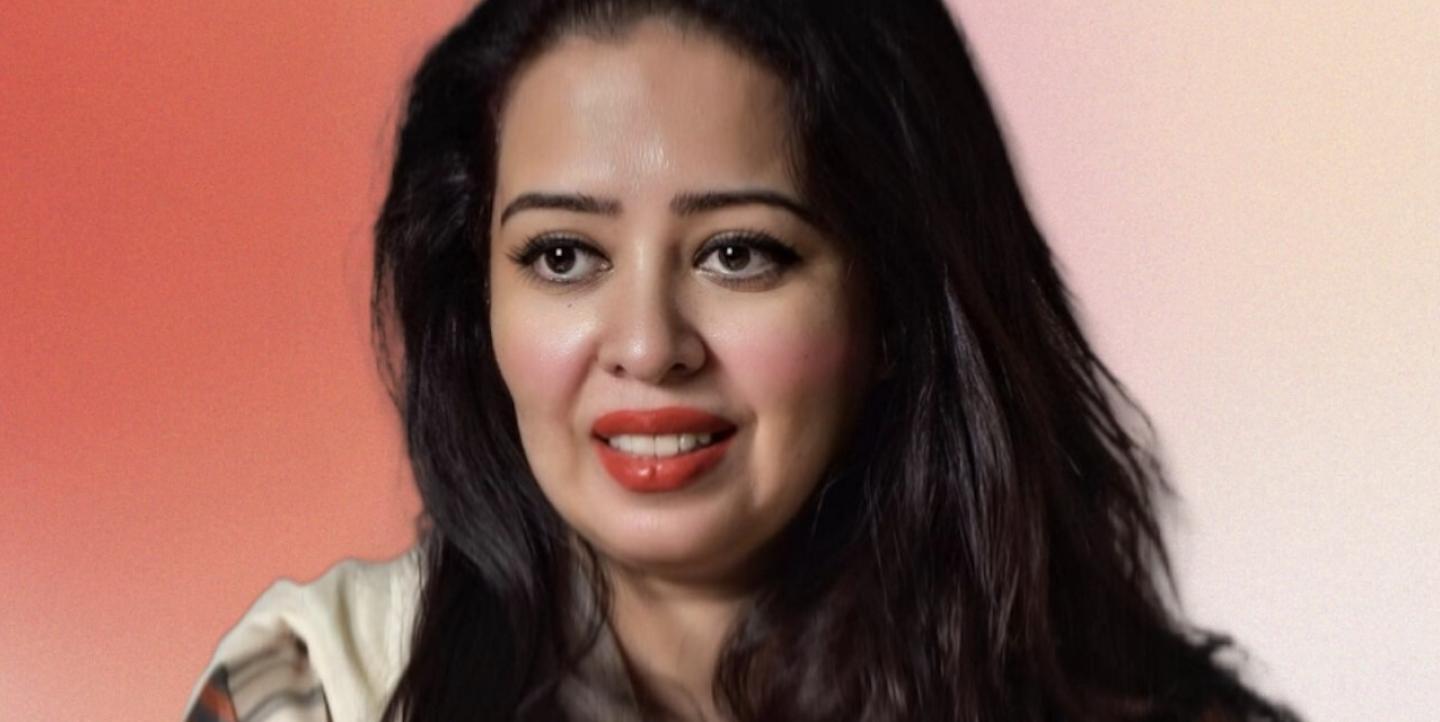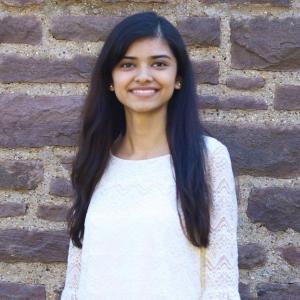Decades ago, the Duke of Edinburgh, Queen Elizabeth’s late husband, visited a school in Pakistan. The same day there was a poetry contest among the students. After one child’s poem touched the Duke, he gifted the student a pen. That child was Sabin Muzaffar, journalist and founder of Ananke.
Born to a family of writers, Muzaffar knew from a young age that she wanted to be a journalist. Her grandfather was a reporter in India before the 1947 partition, and her father was a reporter for the Daily Jang in Pakistan. After completing high school, Muzaffar began working at one of the leading dailies in Pakistan, the News International. She attended university in the morning and worked at the outlet in the evening.
After years of reporting in Pakistan, Muzaffar moved to Dubai where she continued working as a freelancer. She noticed that there was a lack of digital spaces that acknowledged and celebrated women's accomplishments, so she launched Ananke in 2014. Ananke is “a digital media and development platform empowering women through awareness, advocacy and education,” said Muzaffar.
Through her reporting and advocacy work, Muzaffar not only highlights important global issues on gender, but she also empowers a generation of women through digital internships and mentorship initiatives for girls around the world.
What obstacles have you faced as a journalist?
When I began [reporting], the obstacle was the same old misogyny – and I'm not saying it's good, but I think maybe that when you develop a thick skin and you're very vocal about it, then you're able to challenge those challenges.
One thing that was a challenge was when I was launching Ananke. Everyone said that people won't read long form articles. A lot of senior people basically said, “why are you doing this, you're just wasting your time.” So there were naysayers and I said, no, I'm still going to do my thing. This is something I love doing and I think it's really important to showcase female role models.
What has been your favorite project to work on and why?
I realized that just documenting women's achievements isn't enough. You need to walk the talk as well. That’s when I started this mentoring and capacity building program called Empower.
We’ve [covered] topics like advocacy online, cyber safety, communication journalism, and digital journalism. We [Ananke] have mentored and trained more than 80 girls from all over the world. We've got people from Somalia, Malawi, Kenya, Nigeria, Ghana, Australia, the Bahamas, Belarus, India, Pakistan, Bangladesh and Morocco.
The great thing about this virtual program is that we all come together and work together. Age is no barrier. English is no barrier. Our girls have gone on to become these amazing changemakers themselves. They're doing fellowships like the Rhodes Fellowship. One of them was selected as a MIT solver. I boast about it all the time because I'm really proud of that.
How do you protect your sources and yourself?
I've been privileged enough, I think, not to have faced that much scrutiny. Maybe I've become too thick skinned. If you have a strong voice, then you're able to deal with it. I'm not going to say it's easy. I just think that I'm one of the lucky [ones].
As far as protecting my sources, there was this one project that we did a special edition of called Faces of Resilience. This stemmed out of a course that I did through ICFJ— Stemming the Tide of Intolerance. It was a brilliant program. It gave me an idea that I need to come up with a special edition [for Ananke], where we could talk about how intolerance during the time of the pandemic is affecting marginalized communities, as well as women. I spoke to members of the Ahmadi community and the Shia community in Pakistan because they bear the brunt of hatred and suffer a lot. In India, I spoke to the Muslim community. I just changed the names [of my sources] and the special edition was well received.
How have the opportunities you found through IJNet helped you become a better journalist?
There are a lot of webinars that I attended. Every tweet and every webinar is something that helps you learn and grow. The mentors that we were assigned [through Stemming the Tide of Intolerance] were amazing and gave great insight.
We were discussing in one of the ICFJ meetups the fact that small newsrooms, like ours, need to have digital security training, now more than ever, because everything's going remote or hybrid. We need to have a better perspective and be better equipped in this era of vitriol and the dark web. There are these digital security series of webinars [via ICFJ] that are going on that I'm really interested in.
What projects are you currently working on?
One of the most exciting projects that I'm working on is the Ananke Women in Literature Festival. When we began planning for the second edition in 2022, we did it right at the end of March to celebrate Women's Day. It is a collective focusing on the global self, women, gender and the written word, like books and poetry.
Our board of advisors are a women led team including people like Archana Sharma from the U.K. and founder of Neem Tree Press. We've got the founder of Yoda Press, Arpita Das from India and Dr. Amna Yaqin, associate professor at Exeter University. Also, Ameena Hussein from Sri Lanka, founder of Perera Hussein publishing house. There is no hierarchy, it's a collective because the aim is to democratize the publishing landscape.
What advice would you give other freelance journalists?
Be fearless. Be humble. Keep an open mind because learning is a lifelong journey and have empathy. If you have empathy and you're humble, you will instantly open doors to learning because that's how it starts. Fearlessness is really important but of course, you take time for yourself as well and don't go overboard. It's fine to be afraid and to take a pause.
Yes, resilience is great and we're always taught to be thick skinned, but it's okay to have that fear as well, because that shows vulnerability. If you're vulnerable, you can have an impact as well. So it's all connected.
This interview has been lightly edited for clarity.
Photo courtesy of Sabin Muzaffar.


